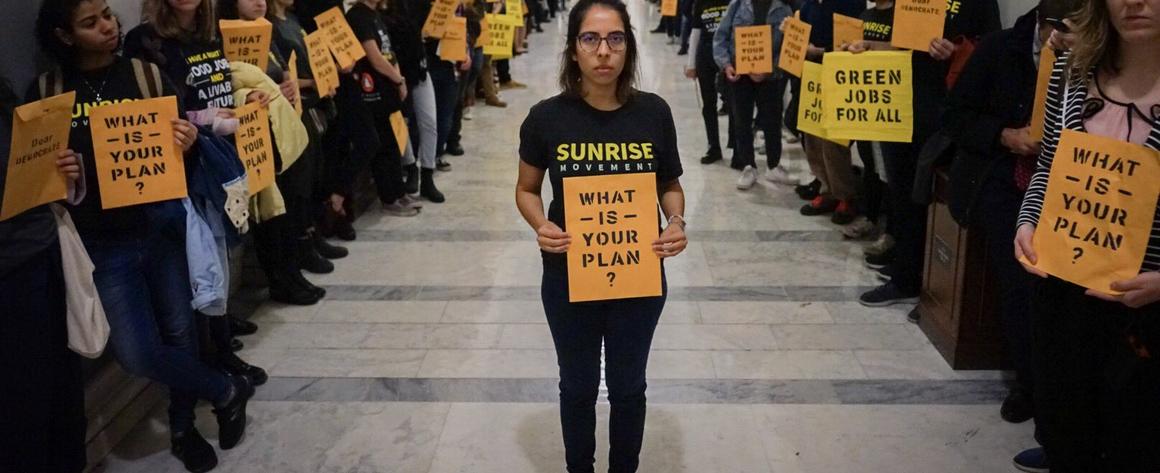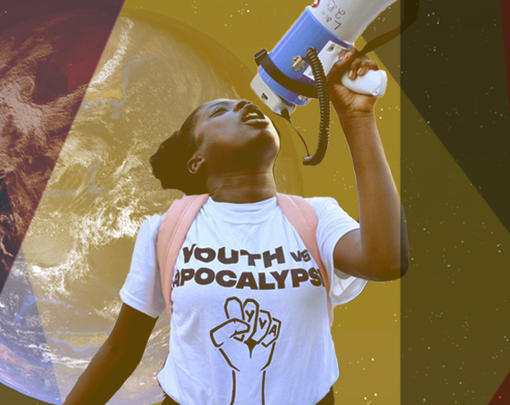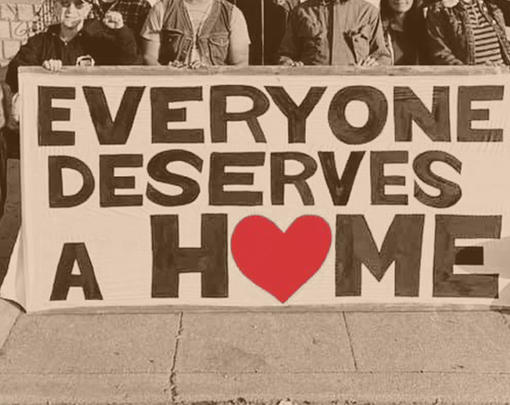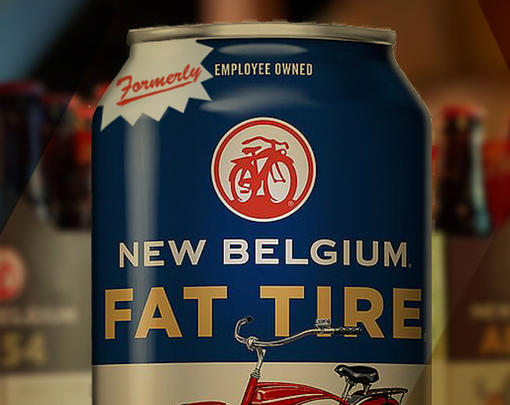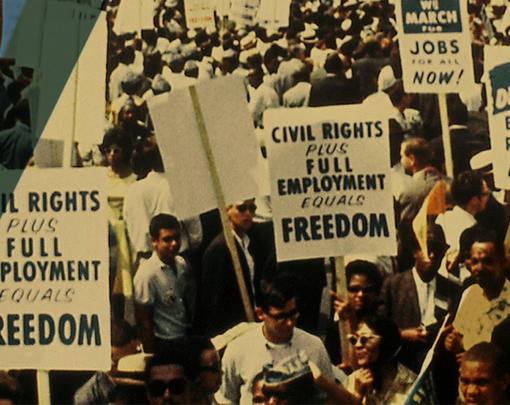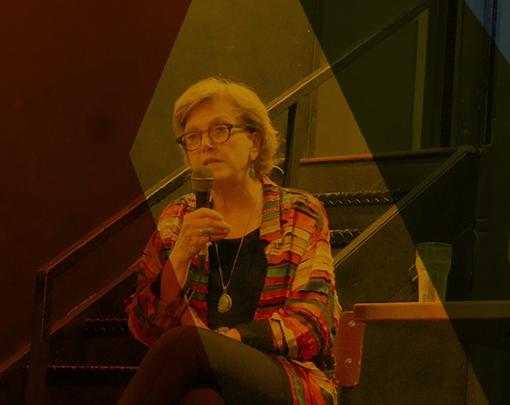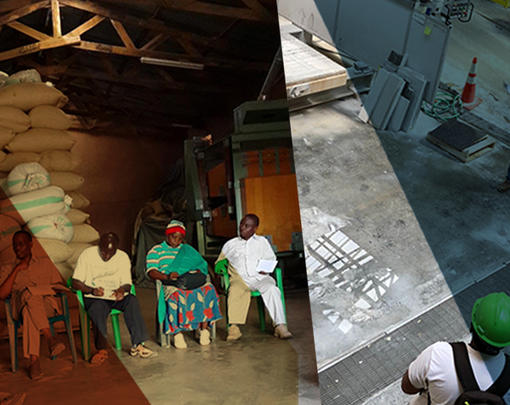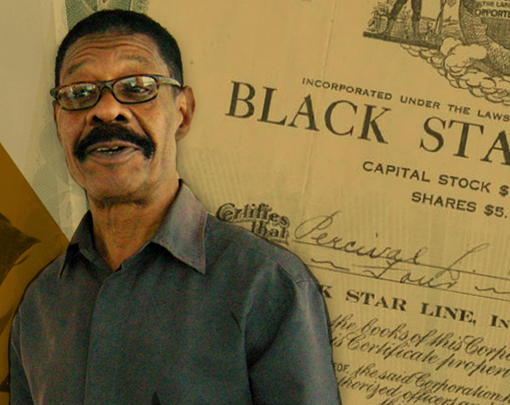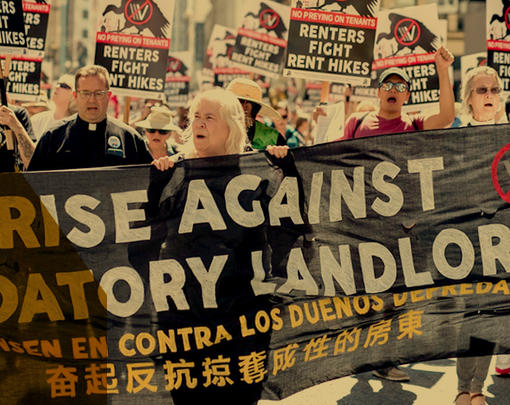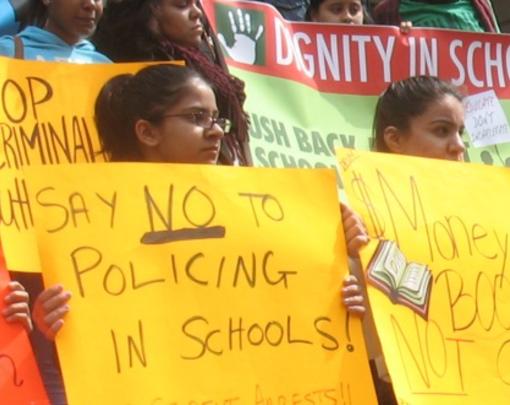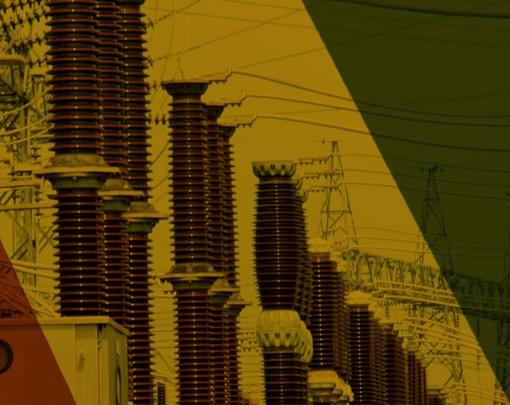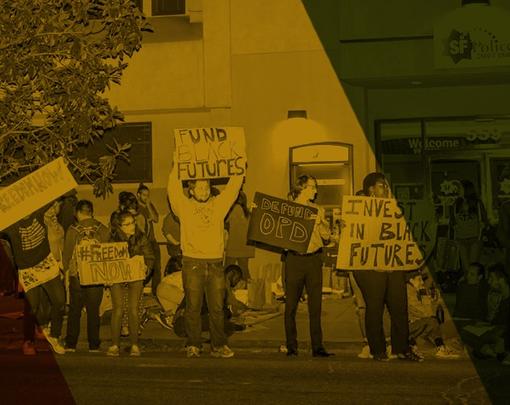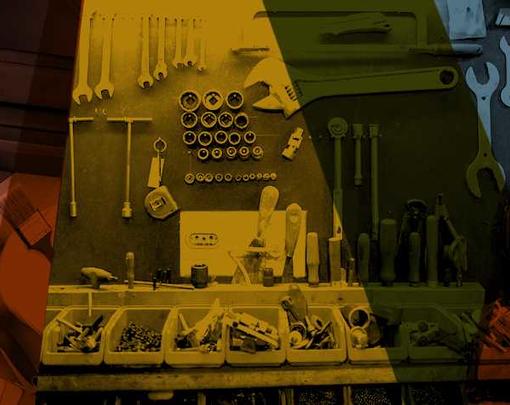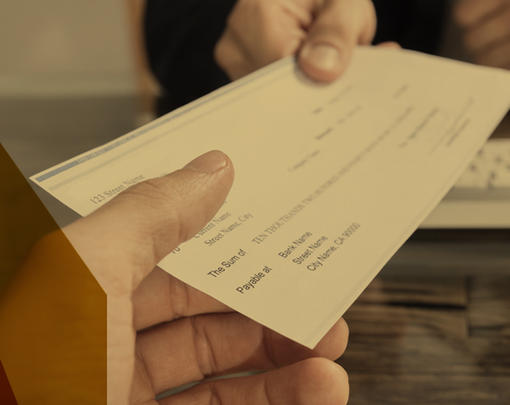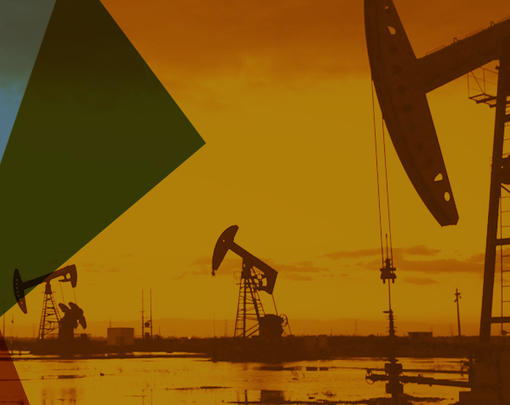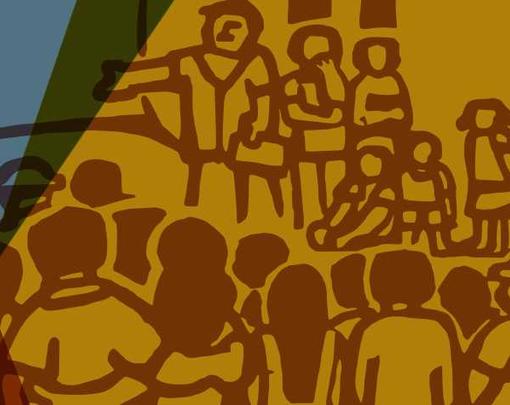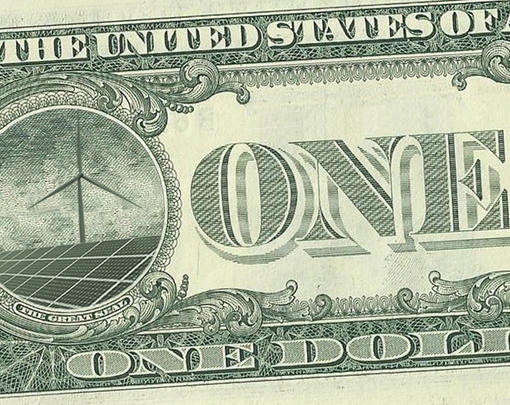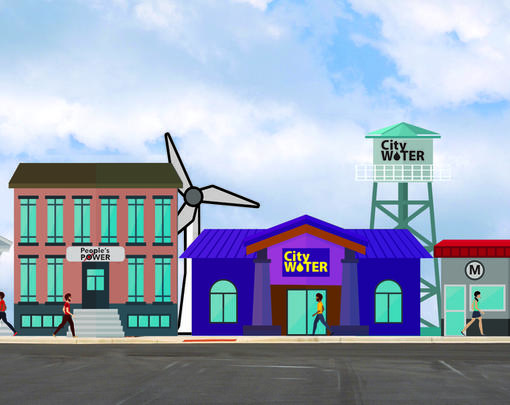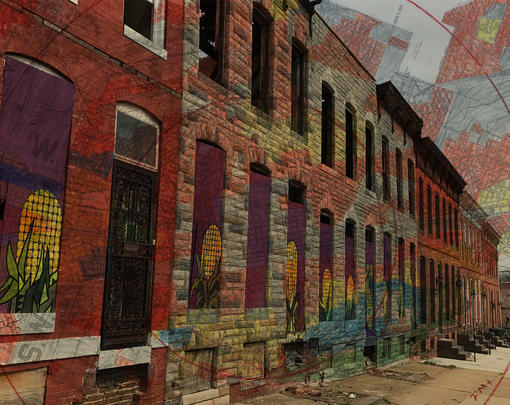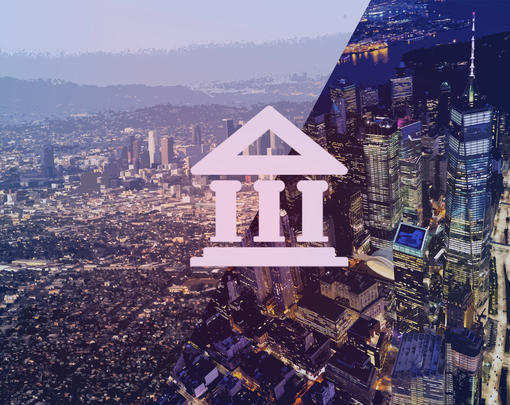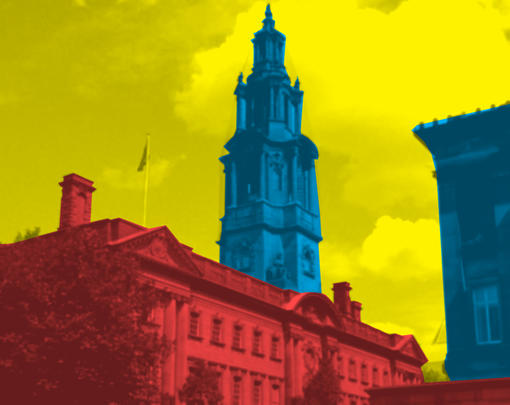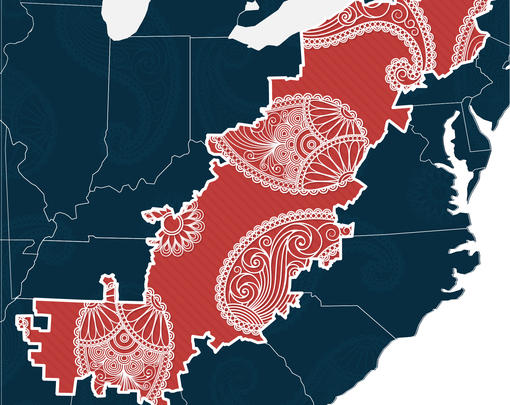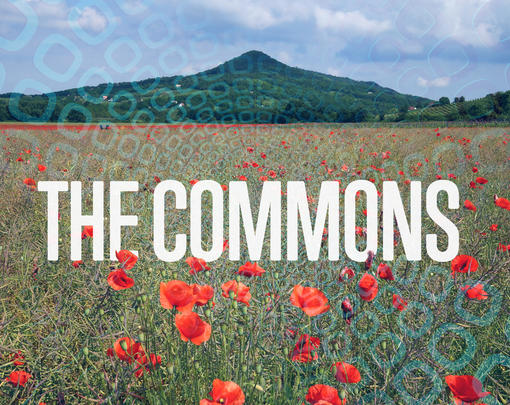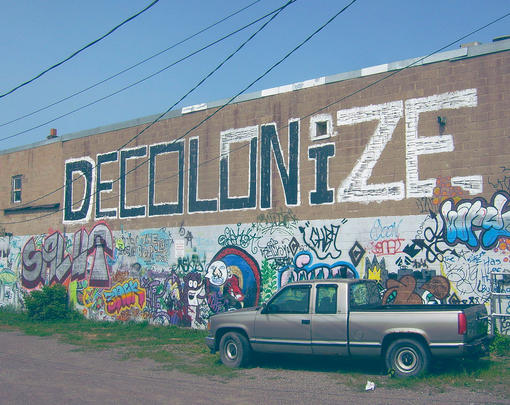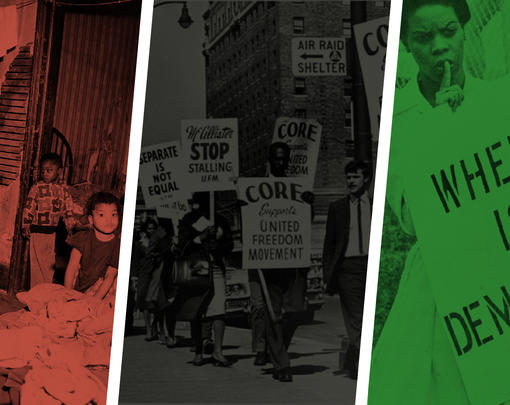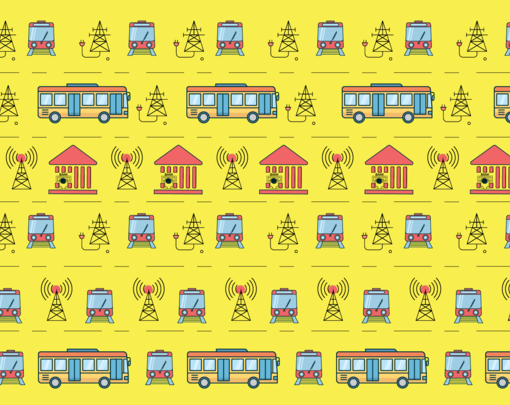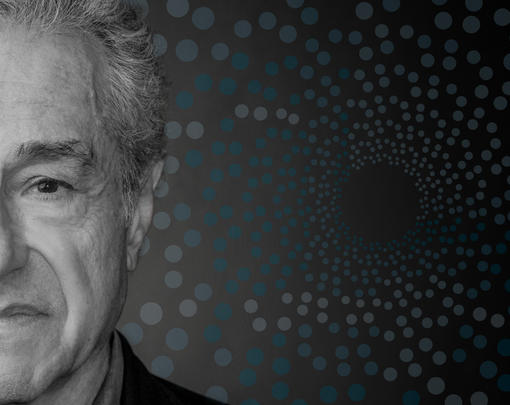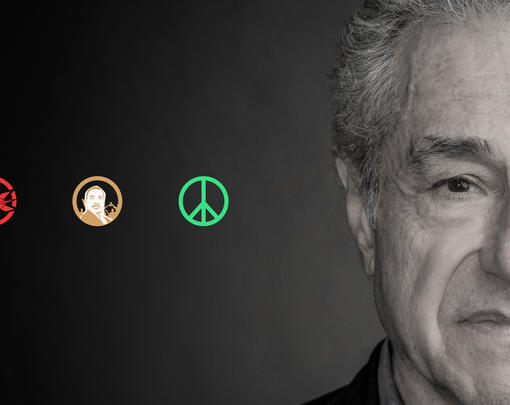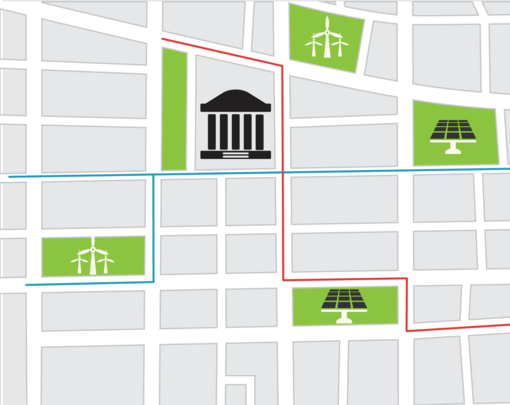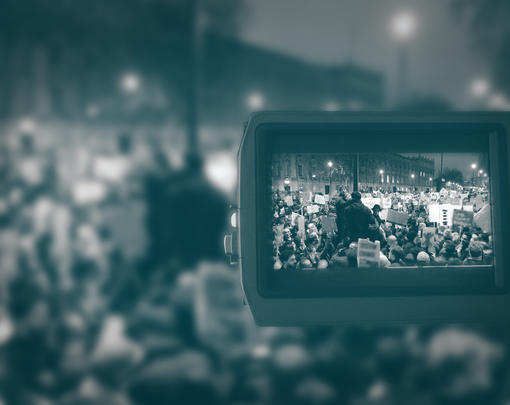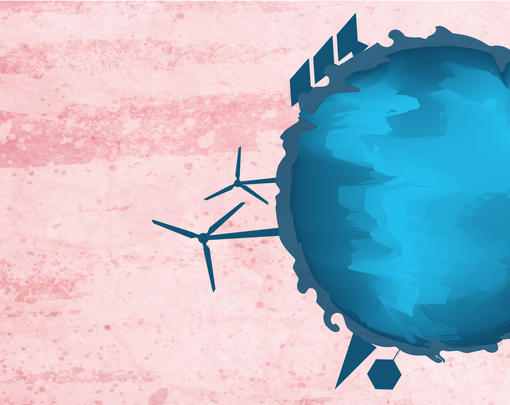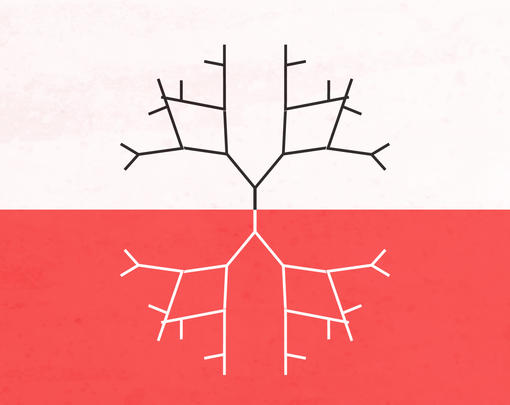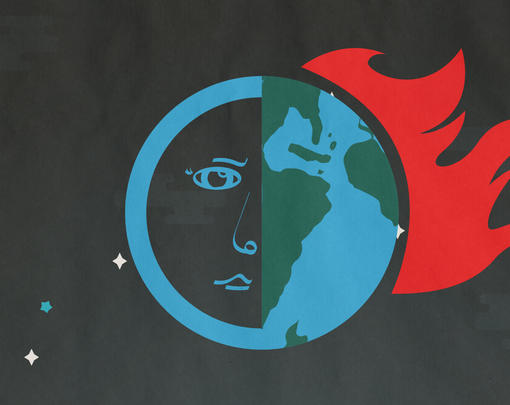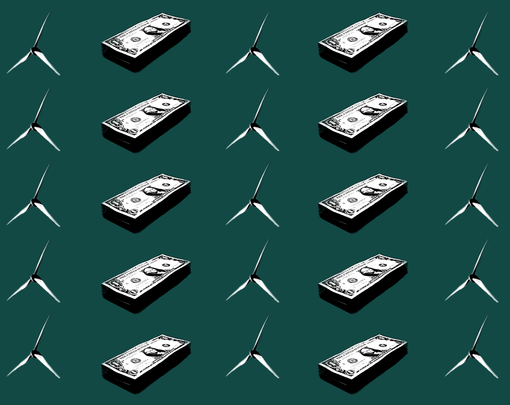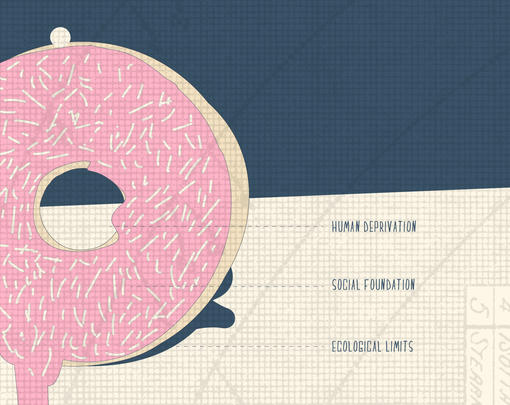This week we have a panel discussion detailing the proposed Green New Deal that activists have been mobilizing for recently. We spoke with The Democracy Collaborative’s own Johanna Bozuwa, the Sierra Club’s Anthony Torres, and Sunrise Movement Co-Founder Evan Weber to explore the economic and social ramifications of a Green New Deal and the obstacles standing in its way.
The Next System Podcast is available on iTunes, Soundcloud, Google Play, and Stitcher Radio. You can also subscribe independently to our RSS feed here.
Adam Simpson: Welcome to The Next System Podcast. My name is Adam Simpson. I’ll be moderating today’s conversation, which I’m really excited about. It’s about the Green New Deal, which has been discussed in the public eye right now.
We have three great guests to talk about it today. Coming up first is Johanna Bozuwa—a colleague of mine here at the Democracy Collaborative—a research associate who works on energy democracy as well as green jobs.
We also have Anthony Torres, a campaign strategist at the Sierra Club’s Living Economy Program. Anthony is originally from Long Island, New York and has been featured as one of Grist.org’s Top 50 fixers and a Brower Youth Award winner.
Finally, we have Evan Weber, political director and co-founder of the Sunrise Movement from Kailua, Hawaii. He has also been featured as one of Grist.org’s Top 50 Fixers.
Evan, if you don’t mind, I’ll start with you, as co-founder of the Sunrise Movement. The Sunrise Movement has been getting a lot of attention right now with organizing on the Hill, getting people energized about climate change and confronting politicians trying to get them to move toward climate action, in particular, supporting this legislation called The Green New Deal. What exactly is The Green New Deal, and what problem is it trying to solve here?
Evan Weber: Well, before I jump into what is The Green New Deal, I’ll just share a little bit about what Sunrise Movement is because although we have been in the news quite a bit, maybe not everyone knows. Sunrise is a movement of young people that is building an army to stop climate change and create millions of good jobs in the process.
Since our launch in 2017, we have been working to make climate change an urgent political priority across America. End the corruption of fossil fuel executives on our politics, and elect leaders who will stand up for the health and well-being of all people, not just the wealthy few. The week after the election, we came to Washington D.C., where I’m based, to make sure that Congress knew that young people were demanding that climate change, and a big bold solution to the scale and complexity of the crisis that our generation faces, be at the top of their political agenda and demand that they do their job to make a plan to stop it—that in doing so, they see that as an opportunity to really transition our society into one that is more equitable, just and helps to create a better world that we can all can thrive in.
That really is what The Green New deal is all about. The Green New Deal, of course, harkens back to the New Deal itself, which was a massive program of economic transition to provide a greater social safety net, bring the United States out of the Great Depression and include more people in our democracy. It was an imperfect project, but one that created a lot of the things that are the bedrock of American society and foundation today and created a lot more widespread economic prosperity. It wasn’t just one bill or one piece of legislation, but rather a framework to move towards a better society. That’s what we think needs to happen with a Green New Deal to stop climate change and create millions of good jobs for Americans across the country. Because climate change is a massive global problem that affects all of society. It’s not going to be just one level of government or one small piece of legislation that can move all this forward, but a national economic industrial mobilization on the scale or perhaps greater than what we saw with the New Deal or the transition that was made to move our economy to fight World War II. Something like that, something big and bold like that is what’s actually needed, what science is telling us very clearly is needed to address climate change.
A month ago now the world’s top scientists issued a new report where they clarified the level of societal transition that is necessary. Basically what they said is that we need to wholesale transform every aspect of society towards zero emissions and sustainability as fast as possible. Globally, if that does not happen in the next 12 years from today, if that does not happen by 2030, we may risk irreversible climate impacts that could damage and completely cripple human civilization as we know it.
Adam Simpson: You mentioned the IPCC report and the urgency there and the kind of changes this needed. It reminds me that when I and Johanna were talking about this episode, she mentioned that the phrase Green New Deal was coined by Thomas Friedman, a New York Times columnist in 2007 in an article that appealed to the profit motivations of multinational corporation. So, Johanna, do you think that we can achieve the kind of economic and political changes necessary to adequately respond to the threat of climate change through appeals like that? What’s your perspective on the 2007 take?
Johanna Bozuwa: I think that’s a really good question. For me, The Green New Deal is really a moment for us to shift our political economy so that it really centers on justice and equity as Evan just mentioned, as he was describing why a Green New Deal is so important. Actually, in the case of rural electrification, which was a major component of the last New Deal, one of the major reasons they focused on rural electrification is because only one out of 10 farms out in rural America were electrified. Even with farmers going and pleading to investor-owned utilities and for-profit major corporations, they didn’t move into those spaces. It was because they saw it as a social good, not an economic one.
I think that this matches in many ways the moment we are in right now, with the climate crisis where multinational corporations, many energy companies have not taken the right steps and moved us fast enough because of some of the imperatives there. What could be possible in this moment for a Green New Deal is for us to shift some of these ownership structures and shifting what jobs mean by for instance, shifting how utilities are even owned so we can put them within the public interest.
So, yes, there might be a certain amount of incentives provided for corporations. But I think that this is also this moment where we can think about who owns the economy and how we can actually ensure that it isn’t the 1 percent that’s making the money off of The Green New Deal, but it’s all of us and it’s really centering justice, which has been a big narrative moving through the Green New Deal as of right now with [Rep. Alexandria] Ocasio-Cortez and the Sunrise Movement who have really said that this has to be really centered on equity.
Adam Simpson: The question of equity is really important here in terms of who benefits. I think we want to explore that much deeper. But taking a step back, before we get to who benefits from the Green New Deal, Anthony, I wanted to turn to you and ask you, because I read a little bit this week about what the Sierra Club has been writing about The Green New Deal, and there’s some good suggestions there on what projects and work would actually be done as part of a Green New Deal. I wanted to ask, within that context, are there specific examples of green projects that you’d point to in order to make the case for a broader national project like we’d see in a potential Green New Deal?
Anthony Torres: Absolutely. As you mentioned, the Green New Deal is an idea that’s a few years old and kudos to Sunrise and new members of Congress who have been popularizing it since this last election. But on the ground in local communities, and it states, the Green New Deal and the policies and projects that it can and does include are also already tangible.
The three major goals of a Green New Deal are creating good jobs, cutting climate and local pollution, and counteracting racial and economic inequity. To tackle the climate crisis at the speed that justice and science demand, a Green New Deal is going to have to include projects from upgrading our infrastructure, revitalizing our energy system, retrofitting our buildings and restoring our ecosystems. The list is large and it has the potential to create millions of jobs, uplift the resiliency of communities, slash air, water and climate pollution and can go across a huge spectrum of community impacts and priorities from transit to energy efficiency.
Anthony Torres: That’s what I feel is so exciting about the Green New Deal; it opens up this umbrella and platform for all of the major public investments we need to not only tackle the climate crisis but also to tackle the crisis of inequality and to finally build a country that works for all of us. When we are looking right now at the Sierra Club looking at these broad local coalitions across the country that have already been winning local policies to achieve the goals of the Green New Deal, examples I’m thinking of right now are in Illinois with the Future Energy Jobs Act or California clean legislation or cities like Pittsburgh and investments in new water and infrastructure. These are all opportunities and winning campaigns where unions, environmentalist, communities are coming together to fight for the public investment and fight for the outcomes and livelihoods and healthy communities that we all deserve.
Johanna Bozuwa: Anthony, thank you so much for showing how this stuff is already happening on the ground. I think that’s really important that we’re already seeing shifts and changes at the municipal and state level. I’m just thinking, as you mentioned, Pittsburgh, an example that I’ve run into in building out our water infrastructure, a group that works specifically with refugees and previously incarcerated folks from the Pittsburgh area specifically to work on rebuilding and creating resiliency in Pittsburgh. I think that it’s a social enterprise that is working on this, and it really provides an example of how through stewarding our natural resources, we can also provide jobs that are on-ramps to employment in really effective and meaningful ways.
Adam Simpson: So, this brings us immediately back to the equity lens of a Green New Deal. This question is really for any of you. We heard a little bit of that about what’s going on in Pittsburgh, but in your mind, how does the Green New Deal provide a pathway and an opportunity for addressing systemic inequality? For instance, the racial wealth gap. How can we bring that equity lens into the Green New Deal?
Anthony Torres: I think it mirrors for me how climate change and inequality are inextricably linked. We cannot tackle one without addressing the other. A Green New Deal could tackle both. The fossil fuel economy has saddled low-income communities and communities of color with disproportionate exposure to dangerous pollution, low-wage jobs and climate disaster; it is contributing to the huge gap we see within America. The status quo leaves millions of us behind and forces some of us to deal with the very frontline burdens of an economy that prioritizes corporate polluters and billionaires.
The disproportionate benefits of a Green New Deal would go to working class families and specifically black and brown working class families that have endured this disproportionate economic and environmental hardship for decades. Unlike the original New Deal, this plan must be one that counteracts the systemic racism and exploitation in our economy by giving these hard-hit communities priority access to the new job opportunities, the cost savings, the pollution cleanup projects, and these resiliency initiatives that Johanna mentioned, like in Pittsburgh, making sure that these communities are consulted and given priority for this transformation in our economy.
Evan Weber: I agree with everything that Anthony just said. I think to add another layer to it, so many national climate policy proposals that we’ve seen over the past few decades and that we’ve been discussing have been stuck in this neoliberal framework that we’re just going to bring the market in and push things in the right direction. That will solve all of our problems. What we’re trying to say with the Green New Deal is no, that’s not enough that we need the government to actually get actively involved in making sure that the community is the least responsible for the crisis of climate change and we have the most to gain in its transition, that we have a seat at the table and are receiving the benefits of a transition to a new economy.
What we’ve seen throughout history is that major economic transitions, if not done carefully, have the ability to leave the people at the margins of society behind. We really need to be careful and intentional with this major economic transition that is necessary to stop climate change and adapt to the impacts that we know are already baked in. We need to be very very careful and intentional to be lifting everybody up and leaving nobody behind in that transition.
Adam Simpson: Great. Talking about the racial equity lens, it reminds me of my conversation. I talked with Sandy Darity about the jobs guarantee program, which I know, Evan, is part of Sunrise’s vision for a Green New Deal. For one thing, the racial equity lens enters there because the black unemployment rate is historically just typically at a recession level even when the white unemployment rate, the general unemployment is very low. That’s the thinking there. But I did want to ask about and move us to a conversation about the jobs guarantee because it’s an interesting part to me of this New Green Deal proposal.
So, Evan, I wanted to follow up there and just ask about how you view the jobs guarantee, that policy idea within the framework of a Green New Deal?
Evan Weber: That’s a great question. The answer is that it’s a critically important piece of the Green New Deal. Again, what the Green New Deal is really about—just like the New Deal was about enshrining what the values and rights of our society truly are—with the Green New Deal, we’re trying to say every community, no matter your Zip code, no matter the color of your skin, has a right to clean water, has a right to clean air, has a right to good food and healthy communities, has a right to a livable future, and perhaps most importantly, has a right to a dignified life and good family-sustaining jobs.
As young people, our generation is both most screwed by the current economic crisis as well as climate change, and that we know that that plays out along class and racial lines as well, like you pointed out. The youth black unemployment rate in this country looks very, very different than the unemployment rate overall, particularly amongst young black men. Also, although we may have a smoothed out unemployment rate across the country, sometimes poverty and unemployment can be hyperlocalized within communities.
With the job guarantee, what we really want to say is that there are so many people in this country in need of good, meaningful work, and there is so much good and meaningful work to be done to stop climate change. By including this provision around a job guarantee, we can say that no matter what community you live in, or what your job currently is, it has the ability to diversify local and regional economies and assist with a just transition. There will be other measures needed in a Green New Deal to ensure a just transition, but we think that a job guarantee can be a critically important part of that.
Johanna Bozuwa: I think that that’s a really good point Evan, and a jobs guarantee is a really integral part of how we move a Green New Deal forward in a way that really does center equity. I think there are really interesting intersections with organized labor as well here, where if we’re trying to create long-term jobs that have wages and working hours that are family-sustaining wages. Organized labor has historically been a major part of that.
I think that it does intersect in many ways with a jobs guarantee, particularly an apprenticeship role, and creating relationships between the jobs guarantee and unions will be important as we’re building up some of these new trades. Particularly in things like electrification, where we’re electrifying more and more of our economy, if we can start to train people up through the jobs guarantee, and then shift them into unionized labor, that can provide us a longer-term haul for folks and entering people up for the long haul.
Anthony Torres: The job guarantee is also something that we are exploring here at Sierra Club about how both communities and workers are heard in our response to this crisis. As a union member myself, labor solidarity has taught me that a Green New Deal must center both the communities most impacted by industry and those who are threatened to be left behind in its absence. So, the jobs created by this approach must be high-road union jobs, family-sustaining wages and benefits, safe working conditions, and as Johanna mentioned, having key training and advancement opportunities so that this is actually a material and transformative transition that doesn’t just serve one or two of our issues, but actually brings all our people forward.
Evan Weber: To build off of both of those points, the last thing that I would just add about a job guarantee is, the way that it would work would be mandating a certain amount of jobs that would either be directly provided by the government or through government contracts, through public-private partnerships. What you can do with that is create standards for what types of jobs those need to be. You can say that all these jobs need to be at a minimum paying $15 an hour, that they need to be union jobs that are allowing the right to organize for public or private workers and so much more benefits, et cetera, et cetera.
What you can do with that is create a new floor for the economy and shift the entire labor market to what the floor of labor standards need to be in this nation. We have a really powerful ability to bring in a lot of the labor movement, people fighting for $15 and a union and more into this coalition around the Green New Deal through the job guarantee.
Adam Simpson: Love all this talk about unions.
Johanna Bozuwa: We’re also union members over here, Local 70, so I’m feeling the solidarity in this conversation a lot. I think that one other thing that comes up for me here is as we’re talking about who we’re working with and who we’re operating within, public ownership comes up for me and cooperative ownership and how we’re shifting even structures of how our different business enterprises are actually operating and who they’re operating for. So, as we’re making this transition, what are the ways that we could actually incentivize cooperative ownership and worker co-ops so that they’re doing some of this work—or even the public sector, which has higher rates of unionization. So, what are the ways that we can utilize some of those tools to ensure that we are getting bona-fide family-sustaining wages and unionized jobs, which I know has been at some points within things like the solar industry has been a place where there haven’t been as many unionized jobs?
Anthony, I wonder if you’ve run into any of that in your work with the Sierra Club around solar and unions.
Anthony Torres: Oh yes. As you were mentioning, Johanna, just as we’re advocating for and organizing around the new economy and a Green New Deal, we also need to be supporting the folks who are going to be building the new economy and who are already doing that, whether with their union, with cooperatives, with other forms of community ownership and accountability. At the same urgency that we fight for this transformation, we need to also be supporting the rights to organize in the clean energy sector.
Anthony Torres: For instance, my union, Progressive Workers Union, has actively supported the right to a union for all workers, whether they are on a Tesla factory floor to those who are installing solar panels on rooftops. We know that this transition and this Green New Deal has the potential to really unlock and redistribute the benefits of our economy across the spectrum for all Americans. We also know that it’s less of a question of how and more of a question of when the American people are going to force Congress to mobilize those vast public resources to make this transition possible for every American.
A big part of that to me, again, going back to being a proud member of a union, is that we need to be looking at not just any job, but good work as Evan mentioned, and dignified work that sustains a high quality of life; not just reducing a statistic such as unemployment, but looking at what the benefits and representation and rights and livelihoods the new economy is going to create for everybody.
Johanna Bozuwa: Yeah, absolutely. I think for me, a lot of the Green New Deal is not just how we survive through climate change; it’s how we thrive in this moment of climate change and the shifts that we can actually make. So, I feel that a lot.
Adam Simpson: Just want to follow up a little bit there. Evan, when you’re talking earlier about this being inspired by the New Deal of the 1930s, that was responding to a very specific economic crisis. There was a very real, unassailable bipartisan agreement that the economy was in the tank. Today, however, we do have this notion even with what the stock market’s been doing in the past few days, there is this notion that the economy is doing great. “We have 3 percent unemployment,” for instance, is something you hear a lot when people are trying to point out the real obstacles that working people are up against in this economy today. I’m wondering about this narrative that the economy is doing just fine, when you’re talking about this, Evan, with working people, when you’re building your movement, when you’re talking to congresspeople, what’s the benefit for workers in the Green New Deal in this particular context?
Evan Weber: Well, when we’re talking to those people, we’re not hearing from them that the economy’s doing just fine. The stock market may be doing great, but that means that the investor class is doing well. That means the corporate class is doing well. Unemployment may be at an all-time low but we know that a big part of that is because a lot of people have sadly given up on finding work. And those people are not counted in the unemployment rate.
When you look at the underemployment rate, that is much higher, a lot of people are not making family-sustaining wages and are working multiple jobs just to scrape by. Meanwhile, Congress is passing tax cuts that further deepen economic inequality by handing billions to corporations and the mega-rich. So, the economy is doing just fine if you’re sitting at the top of the pyramid, but it’s not doing just fine for a lot of people. These numbers that flash across our screens every now and then do a lot to hide that.
So the Green New Deal is about a more holistic version of economic prosperity for all, not just a wealthy few. I think most of the people that we’re talking to around the country can see that pretty clearly.
Adam Simpson: But Evan, just a quick follow up on that point. The investor class, the fossil fuel companies, they in so many ways own many parts of our political system to put it a certain way. What’s it like organizing against that type of power at the policy level?
Evan Weber: It’s an uphill battle for sure. But we’ve got to fight it and I think we’re making some serious gains. One of the things that Sunrise Movement organized around as our major campaign this year was to get as many candidates as possible to take a no-fossil-fuel money pledge, where they pledge to reject contributions from oil, gas and coal and fossil fuel utility executives, lobbyists and corporate PACs, and instead stand with the health of our families, climate and democracy.
We got over 1,300 candidates to take that pledge, including more than half of the incoming new members of Congress, which we’re really excited about. So, we’re beginning to break the stranglehold that interests like the fossil fuel executives have on our democracy with other partners who are working on ending the influence of corporate PAC money more broadly. Shout out to our friends at Justice Democrats who have been working to recruit, train and elect candidates who reject all corporate PAC money.
We’re seeing a new class of politicians getting elected, particularly in this last election at the local, state and federal level who are not beholden to these corporate interests and stand with working people and have the political courage and, frankly, ability to put out the bold ideas that are necessary to transform our society and our economy. One of those such candidates is Alexandria Ocasio-Cortez herself, who is a Justice Democrat who’s rejected corporate PAC money and also took our no-fossil-fuel-money pledge. That’s the kind of politician that you get when you remove that influence. So, we need to see a lot more of that. It is an uphill battle, but I do believe that we can win and have to win.
Adam Simpson: Anthony, I want to turn to you about some work that the Living Economy Program at Sierra Club has been working on. It has to do with the intersection between a potential Green New Deal in trade. Does greening the economy in the United States incentivize more greenhouse-gas-intensive activity elsewhere under currently existing trade regulations? That is one of the formative questions we have about the kind of relationship between trade and the Green New Deal.
Anthony Torres: It’s a great question. Right now, the corporate trade agenda and the promise of a Green New Deal are opposites. The original North American Free Trade Agreement, NAFTA, subsequent corporate trade deals and Trump’s current NAFTA 2.0 proposal would undercut the goals of a Green New Deal, and generally climate action by allowing corporate polluters to shift their pollution across borders, being able to lower the barriers for companies to close shop here and go somewhere else where they have lower labor and environmental standards, and then ship those products back here.
Additionally, these trade rules allow corporate polluters to directly challenge Green New Deal policies in private tribunals that are only accessible by them. I believe that nobody should be left behind or forced from home, whether by our unfair trade policies, whether by climate change, whether by conflict. When we look at the intersection of climate and trade, we see that our response has to be global. We have to be able to realize the full impact of actual pollution. That means going back to all the things you’ve mentioned on so many of the different parts of this solution that we’ve mentioned on this call. Whether it be the work of transforming our clean energy economy being union work. Whether it be creating a new approach to trade that stops the race to the bottom and climate protection across the world that actually mitigates the pollution from trade. Whether it is actually ensuring community wealth building, especially by black and brown people in this country so that they can own their stake in this transformation.
We have to see all the complexity and intersections and face it in a big, bold and rapid front if we’re going to meet the scale of the crisis in front of us.
Adam Simpson: Absolutely. Moving on, again, probably to a question that everyone here has thought about, a very typical question you get when talking about big policy ideas. I do want to start with Johanna. The question is, how will you pay for it?
Johanna Bozuwa: Now, the funny thing is that this is a question that is asked when it comes to climate change, but this is not a question that Congress asks when it wants to bail out the banks or even, wants to put on a war. Then the question is obsolete. I think that that is a huge problem because climate change is one of the biggest problems right now and the thing that we need to fix because it really it is all of our livelihoods at stake, particularly people that have done the least to affect climate change.
To be bold, we could do what happens when they want to bail out the banks. We could print money. We have the sovereignty to have our Federal Reserve actually print the money that we need in order to make this work. This was done during the bailout of the banks in 2008, and as well it was done during the New Deal.
I think that really when it comes to how do we pay for it, Stephanie Kelton, who has been an incredible advisor on modern monetary theory, has really proven that this is not a barrier for us in moving forward on the Green New Deal. And then also, just for some more context here, I think this question to me is troubling—”How will you pay for it?”—when the reality is we’re shelling out so much money to corporations and to fossil fuel companies already. We give $20 billion each year in fossil fuel subsidies, conservatively, according to Oil Change International. As Anthony mentioned earlier, we just gave a $10 trillion tax cut with most of it going to the wealthy.
I really don’t think that this stands in our way as a major problem in actually mobilizing towards a Green New Deal. Particularly since when the government spends money on things like infrastructure, it benefits our economy, and actually more money is spent in the economy and helps us facilitate local spending and builds community wealth. I think there are ways. This is not the reason that the Green New Deal should not go through. The reality is that it’s about political will, and that’s why people bring up this question of how we will pay for it.
Anthony Torres: Again, I think it’s less of a question of how and more of a question of when the American people force Congress to mobilize the vast public resources to transition from an economy built on exploitation in fossil fuels to one driven by dignified work and clean energy.
Evan Weber: I think this has to be done. To ask the question of how we are going to pay for it, almost displays a moral bankruptcy that’s truly unimaginable—especially, as Johanna pointed out, when we’re not asking that question about how we’re going to pay for wars abroad or tax cuts for corporations or the mega-rich. So, this is a question of national priorities and values at any time in this country throughout history, whether it was World War II or the New Deal or sending a man to the moon.
When America decided and had the public and political consensus to get something done, we figured out how to get it done, and as the wealthiest country in the world, we should be able to do just that.
Adam Simpson: We’re just about out of time. But I’m going to do my damnedest to ask one final question and it’s about the role that currently existing private banks play in the climate crisis. As part of a transition, those banks are going to have to stop doing the things that they’re doing. What impact will a Green New Deal in your mind have on those currently existing “bad banks” that are funding fossil fuel companies, funding new pipelines, more fossil fuel infrastructure? How do you see change coming to that sector of the finance system in terms of a transition? This question is really for anyone.
Evan Weber: I think it’s an important and complicated question. Listen, we’ve got to make this transition as fast as possible. The goal that science demands is that we essentially transition the entire economy and society within a decade. Now, I’m not sure if we’re going to end capitalism at that time, by that time. But maybe we will. But if we don’t, I think that private banks will have to play a role. So, getting them to move into a more productive role in helping to finance renewable and green economy transition is critically important rather than where they are currently in adding to the destruction.
One of the tools that can actually help do that and move private capital along would be a public bank, which I think is an important piece of the Green New Deal as well. That could leverage private capital and also create competitive financing for the types of projects that are needed to help shift the economy in the right direction.
Johanna Bozuwa: Absolutely. Though we might not be able to end capitalism in time to take care of climate change, we sure as hell can erode capitalism. I think that one of the ways to do that, as you mentioned, Evan, to a certain degree is through public banks. I know that there are multiple campaigns across the United States that are working on implementing public banks so that they actually can reinvest in their communities. Well, they’re divesting from things like fossil fuels, from prisons and from other things that banks like Wells Fargo are investing in.
I think that this also provides us thinking through some of the financing and the “how” piece, if we know how we’re going to pay for it. How we deploy those finances does become a really interesting question, and who are the people who are in charge of that money and actually get to deploy it? I think this is where public things will become incredibly important in the Green New Deal.
Adam Simpson: With that, I want to thank everyone for joining us on the Next System Podcast. I’m Adam Simpson. A big thank you to the Johanna Bozuwa, my colleague here at The Democracy Collaborative. Anthony Torres from the Sierra Club’s, Living Economy Program, and Evan Weber, political director and co-founder of The Sunrise Movement. Thanks everyone for joining us.




